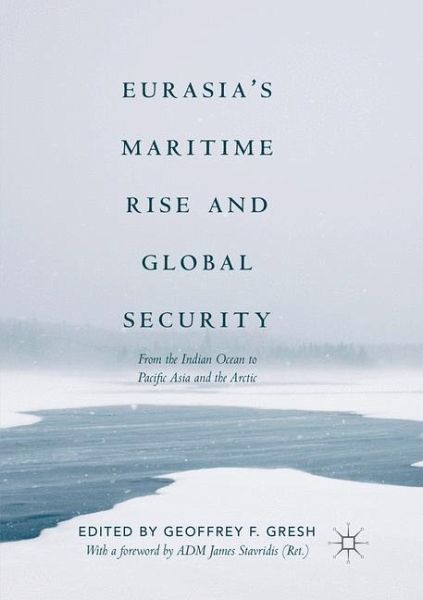
Eurasia's Maritime Rise and Global Security
From the Indian Ocean to Pacific Asia and the Arctic
Herausgegeben: Gresh, Geoffrey F.
Versandkostenfrei!
Versandfertig in 6-10 Tagen
166,99 €
inkl. MwSt.

PAYBACK Punkte
83 °P sammeln!
This book explores Eurasia's growing embrace of its maritime geography from the Indian Ocean to Pacific Asia and the Arctic. In an age of climate change, the melting of the Arctic will transform Eurasia's importance, in addition to influencing the political, economic, and military dynamics across Eurasia's main maritime regions. These emerging shifts have already begun to alter maritime trade and investment patterns, and thus the global political economy. It also creates a rising threat to the current status quo of world order that has long been dominated by the Atlantic World. This edited vol...
This book explores Eurasia's growing embrace of its maritime geography from the Indian Ocean to Pacific Asia and the Arctic. In an age of climate change, the melting of the Arctic will transform Eurasia's importance, in addition to influencing the political, economic, and military dynamics across Eurasia's main maritime regions. These emerging shifts have already begun to alter maritime trade and investment patterns, and thus the global political economy. It also creates a rising threat to the current status quo of world order that has long been dominated by the Atlantic World. This edited volume showcases some of the world's leading experts and examines Eurasia from a saltwater perspective, analyzing its main maritime spaces in a threefold manner-as avenue, as arena, as source-to show the significance of this geostrategic change and why it matters for the future of the world's oceans.














